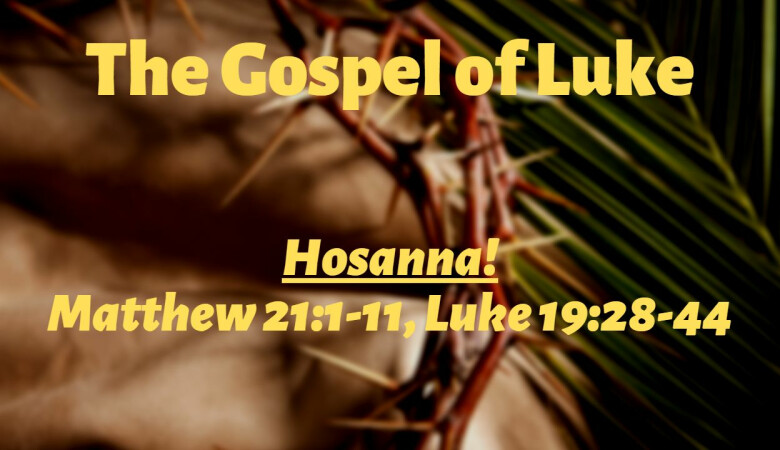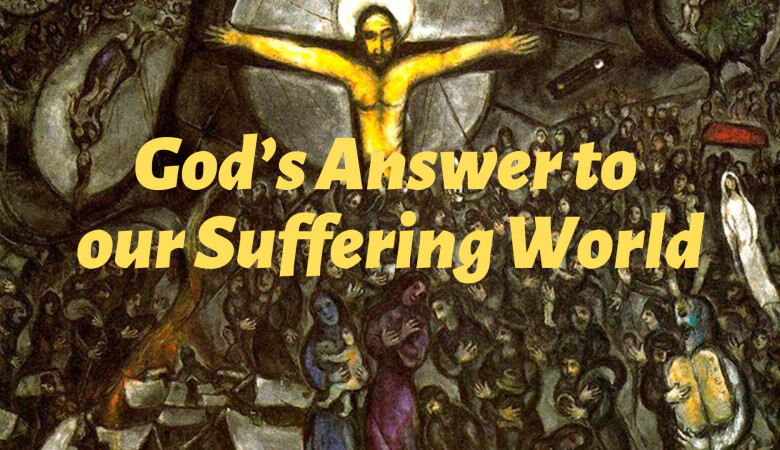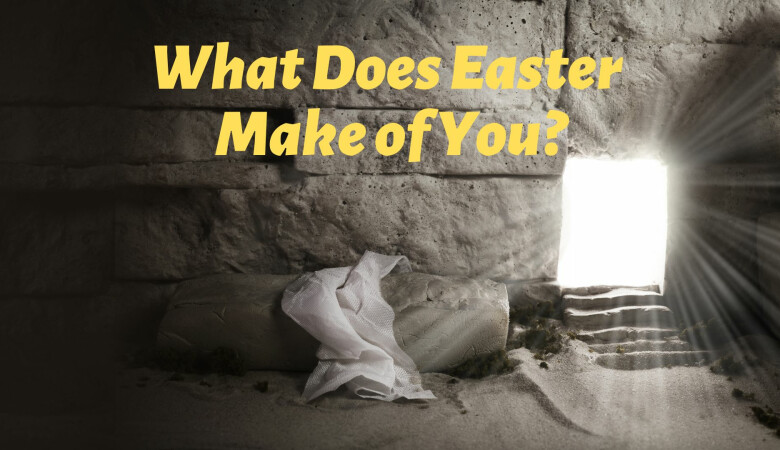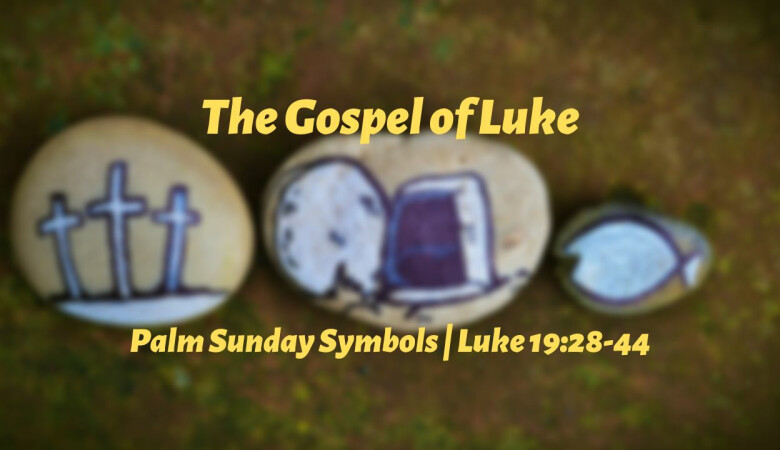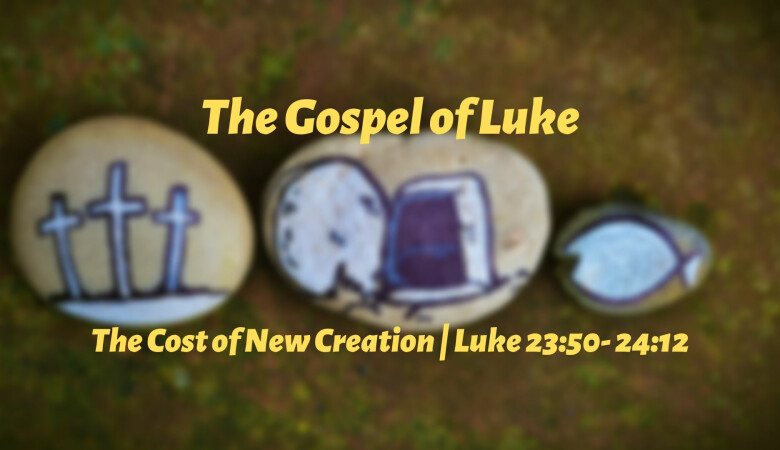Series: Lent
God’s Answer to our Suffering World 2024
March 29, 2024 | Peter Rowan
Passage: Luke 23:35-43
ALL SERMONS IN SERIES
Summary
The last words in Jesus' ears were not "Crucify him!" but rather "save yourself." He had entered Jerusalem to cries of "Hosanna!" which means "Save us!", Jesus stays on the cross not to save himself, but to save us. He doesn't save himself, but rather he saves the guilty, he saves us. This is the good news. And this good news is received as we, like the thief on the cross, know that we have nothing to bring to Jesus and all we can do is receive him. "Jesus, remember me when you come into your Kingdom", is answered with "Today, you will be with me in paradise!"
Transcript
Let me pray for us.
Lord, we thank you that you've welcomed us into your presence, you've called us to be with you today. And to give our attention to this central image of the good news of Christian faith, this mark that was the greatest symbol of violent subjugation, the destruction of a body, that in the miracle of Christ becomes a symbol of love.
God, I pray that as we give our attention to the gift of your life for ours, even the very gift of your death, that you would give us a sobriety of our life, that we would have a greater sense of our sinfulness, that we would have a greater desire to follow you, that we would be in awe of such love, such grace, and such mercy, such overwhelming compassion.
Speak to us even now, we pray. Amen.
I want to share with you a little bit about the cross and crucifixion, and then we're going to spend some time in this little narrative in Luke, that is actually the next section in our study that we just heard from, the last two passages that we just heard.
So this first little section I want to read to you about crucifixion comes from Tom Holland's book, he's a British historian who's incredibly interested. He wrote a book called Dominion just recently, five years ago. He writes this about crucifixion in the cross. He says, "Exposed to public view like slabs of meat hung from a market stall, troublesome slaves were nailed to crosses.
No death was more excruciating, more contemptible than crucifixion. To be hung naked, long in agony, swelling with ugly wheels on shoulders and chests, helpless to beat away the clamorous birds I've read elsewhere, often you would expect that flies and insects would actually be on those being crucified because of the blood and the cuts that they had already received.
As such a fate, Roman intellectuals agreed was the worst imaginable. Nothing spoke more eloquently of a failed revolt, as in the sight of hundreds upon hundreds of corpse hung crosses, whether lining a highway or else masked before a rebellious city. The hills all rounded, stripped bare of their trees. Even in peacetime, executioners would make a spectacle of their victims by suspending them in a variety of inventive ways, one perhaps upside down with his head towards the ground. Another with a stake driven into his body.
I'm editing that part for gentle ears.
Another attached to his arm, by his arms to a yoke. Yet in the exposure of the crucified to the public gaze, there lurked a paradox. So foul was the carry-on reek of their discrates that many felt tainted even by viewing a crucifixion. The Romans, for all that they had adopted, for all that they had adopted the punishment as the supreme penalty, they refused to countenance the possibility that it had originated with them. Meaning they thought it was so bad that they couldn't take the ownership of the cross. Only people famed for their barbarousness, which the Romans, they would say, we weren't. And cruelty could ever divide such a torture. The Persians, perhaps, or the Assyrians, or the Gauls.
Everything about the nailing of a point to a cross, a crux, was repellent. Why, the very word is harsh on our ears, crux. It was this disgust that crucifixion uniquely inspired, which explained why when slaves were condemned to death, they were executed in the meanest, wretchedest stretch of land beyond the city walls. What Luke tells us was called the place of the skull.
That's Tom Holland. Listen to this. John Stott, he has a great book on the cross, called The Cross of Christ. And in it he talks about how the Romans viewed the cross, but then also the Jews.
He says, "Roman citizens were exempt from crucifixion, except in extreme cases of treason. Cicero, in one of his speeches, condemned it as a most cruel and disgusting punishment. Later on he declared, "To bind a Roman citizen is a crime. To flog him is an abomination. To kill him is almost an act of murder. To crucify him is..." What? There's no fitting word that can possibly describe how horrendous the deed is.
Cicero was more explicit in his defense in 63AD of an elderly senator, Gaius, who he'd been charged with murder. "The very word cross should be far removed, not only from the person of a Roman citizen, but from his thoughts, from his ears, and from his mouth." Don't even mention that word. It's so disgusting, so repellent.
Stott goes on to say, "If the Romans regard crucifixion with horror, so did the Jews, though for a different reason. They made no distinction between a tree and a cross. So to be hung on a tree was similar to the idea of crucifixion, and it's actually written into the Jewish law in Deuteronomy. You may be familiar with this. Anyone who is hung on a tree is under God's curse
A similar kind of mentality for the Jews. They couldn't bring themselves to believe that God's Messiah could possibly be on a tree.
And Trifo, the Jew, put it to Justin later on when he was defending Christian faith I'm exceedingly incredulous on this point, because I can't believe this part of it.
So here, I kind of share this because I want you to see, at least in part, that the cross is only something for those who are criminals. The ones that know that they've done something wrong, that everybody else says, "It's such a disgusting way to die that that person had to be wrong. They had to deserve it. It's only for slaves, for the really criminal."
But I also share this with you because there's so much detail. I could have gone into so much detail about the horrendous nature of the cross.
But in the passage that we have in Luke, where Jesus dies on a cross, Luke mentions it almost just in passing. I don't know if you actually caught that. He's kind of just matter of fact, we don't have the verses for us in here, but this is verse 33, Luke chapter 23.
It says this, "And when they came to the place that's called the skull, there they crucified him, and the criminals won on his right and won on his left." It's just sort of in passing almost there, Jesus was crucified.
And you almost think in light of all this other stuff, why in the world would Luke just bow? There he was crucified. And then give all of his attention to all this other dialogue.
So if he doesn't get into all of the importance of the cross and the crucifixion, how horrendous it is, now, we could assume that he probably expected that his audience might have known that, but maybe it means that the point he is trying to make, we need to hear really clearly, right?
And what he is saying is this,
Jesus suffers the death of the unrighteous, that the unrighteous might be given life, life eternal. I think this is pretty clear in this passage, Jesus suffers the death of the unrighteous, that the unrighteous might be given life, the life of the righteous.
And I think what is happening in this passage that Luke does make clear, because he doesn't actually emphasize the crucifixion itself so much. I think what he is emphasizing is the sinfulness of humanity and also just the utter compassion of God.
So I just want you to see this quickly, okay? This is not like a full length sermon that, you know, you're used to on Sunday morning, but I want you to see this, okay?
The sinfulness of humanity. One of the things that is noted very clearly in these passages is that these two guys that are hanging with him are criminals.
The section begins in verse 32, "Two other men, both criminals." And then actually when both of these men are later mentioned at the end of the section, again, it mentions these guys are criminals, okay?
If you actually turn to the last part that was read, sort of in the middle there, this is actually verse 39 if you have a Bible, it says, "One of the criminals."
And then verse 40, "But the other criminal," it doesn't say, "But the other man hanging there," or "One of the men hanging there." The point is, these guys have done wrong. These guys are guilty. They're criminals. And actually what's kind of interesting is that one of them at least affirms this fact. They're wrongdoing. They're deserving of death.
Again, verse 40, "But the other criminal rebuked him." Don't you fear God? He said, "Since you're under the same sentence, we are punished justly for forgetting what our deeds deserve."
The criminal himself is saying, "We have done wrong. We've sinned. We've erred. We have gone and done something that actually deserves death." That's what this man says.
The other thing that we have there beyond these criminals that are highlighted for us, that sort of emphasizes just the utter sinfulness of humankind, is that pretty much everybody in this passage is mocking God.
Mocking Jesus.
Verse 35, which is the part that begins the second section that says the Stone of Separation. It says, "The people stood watching, and the rulers even sneered at him."
"Sneering at him." Other translations say they scoffed. The next passage, the next verse rather, verse 36, says, "The soldiers came up to him and mocked him."
If you keep going down, of course I mentioned the criminal, verse 39, "One of the criminals who hunt there hurled in the soul side." The scene is everybody actually mocking God.
So when you take all this passage together, what I'm suggesting to you is what we see is actually in some ways not just the... We might want the detail of the cross and that highlights for us, knowing that, highlights for us the fact that this is a death of a criminal. This is how criminals die.
But what you see when you take all this together is everybody here in this passage is full of sin. They're rejecting God. They're guilty by their actions and by the admission of their actions. They're full of guilt.
They're full of sin in this passage. Rejection of God. Sinfulness of humanity.
We are not invited when we come to this text to think that anybody else has done right in their life. Other than we have this question of what about Jesus here?
Kind of wildly in this passage, like we've actually heard earlier in passages of Luke,
Jesus is hanging there and he's without guilt. And this other criminal kind of echoes the same thing that Pilate had said earlier.
Verse 41, he says, "This man has done nothing wrong." The consistent theme of actually the passion narrative is Jesus is... He's guiltless. Nothing wrong. But the consistent message that we get from everybody else, including his disciples, is they're guilty.
The sinfulness of humanity.
He's there hanging without cause and the refrain is everybody else mocking. Save yourself.And instead of saving himself, we actually have, and when we look at Jesus in this passage, and not everybody else, what we see is the utter compassion of God.
When we look at everybody else, what we see is just the sinfulness of humanity. When we look at Jesus, we see this unbelievable compassion. And so I just want to let you see a few of those things.
Let's consider the two times Jesus speaks.
The first time, which is the earlier text. Jesus says this, verse 34,
"Father, forgive them, for they do not know what they are doing."
Now, that's the context of... You have these Roman soldiers. What I read last week was that typically there would be at least four Roman soldiers that would lead somebody through the streets of a city, parading them around with their cross, so that everybody else could jeer at them and mock at them.
And typically, actually, people in those days would have five different items of apparel that they would wear, sashes and certain things like that. And so the four soldiers would typically actually receive one of those items, and then it would be common that they really would barter over the fifth.
And so these guys, you have to picture this scene. They have crucified Jesus. They've literally nailed his hands and his feet to a wooden cross. He's hanging there in agony. There's these two men next to him. There's probably a crowd mocking him. And these guys have been calloused to this kind of violence, this horrendous violence that I read to you about. They have callous hearts. The ugliness of all this.
And then what we actually see them doing is really kind of just a greedy act. They're like, "Just what can I take home at the end of the day? What can be mine? What can I have here while you have people being crucified right next to you?"
And it's in this situation of like a callousness to utter violence and a selfish greed that the words of Jesus to them is not, "What are you doing? I'm hanging here bleeding, and you're just trying to take more clothes home?" You know, calling out the callousness towards violence and their greed.
Instead, what we have is this unbelievable compassion of God. "Father, forgive them, for they don't know what they do."
Utter compassion.
The second time Jesus speaks, again, he's just absolutely full of compassion. It's at the end of the next passage. Jesus answered him, "Truly I tell you, today he will be with me in paradise."
Here we have a criminal that we know almost nothing about. Matthew and Mark do tell us that they were robbers.
So they took from other people. They said, "Oh, you might have this, but I'm more important than you are, and I'm going to take whatever." And they must have taken a great deal if they actually were on a cross, because we know that just the worst criminals were on crosses.
But we don't know a whole lot about this man.
We know that one of the criminals mocks Jesus, and then the other one simply, when he speaks to Jesus, not just to the other criminal, he says, "Jesus, remember me. Remember me."
But I also do want you to actually sit, I want us to sit together a little bit in what else this guy says, beyond what he says to Jesus, as he said to the other man. Well, he confesses some essential parts to Christian confession.
One, he confesses a fear of God. It's verse 41. But the other criminal rebuked him, "Don't you fear God?" He has a sense of who he is, who God is, even though he is guilty.
He confesses the justice of judgment. We are receiving the due reward for our deeds. He has a sense that sin actually demands some level of justice and judgment.
He confesses the righteousness of Jesus. This man's done nothing wrong. That's a remarkable statement of confession this man's making. He confesses a future hope.
"Remember me."
I actually have a hope in this life to come, if this person will extend grace to me. This man is hanging next to me. And then he also confesses this belief that Jesus really can do something for him.
Jesus, remember me when you come into your kingdom. The emphasis is on the work and the possibility of God's grace in Christ.
Alright, so some reflections.
And I want you to think back, of course, this week. We began the week in Palm Sunday. And this Palm Sunday, I invited you to think of the symbols of that day, the palms and the cloaks that are thrown down. And how those palms and those shouts of Hosanna said, "Save us!" And how they also were very nationalistic. And they also said, "You be the king. You know, you be our king."
And here we're at the end of this week, and these people are saying, "Save yourself, and if you're the king, you know." Plackered up above him, which would have written his judgment, the king of the Jews. And all of this is tied to the mocking of God now.
I invited you a little bit to consider how, sort of, a matter of fact the crucifixion of Jesus was, right? Just now, the fact that all Luke really says is there they crucified him.
But when you take all this together, the sinfulness of humanity, the compassion of God, Jesus not saving himself, what we see is that God is intent on saving us. Actually making good on that cry from earlier in that week.
Sinfulness of God, or the sinfulness of humanity and the compassion of God. And all of this is right at the heart of Christian faith, which is to say, the righteous for the unrighteous. The one who's done nothing wrong for those who are full of sin
The guiltless for the guilty.
Right here in this little dialogue on the cross, we have the center of Christian faith. All of us are dead. All of us are guilty. All of us demand justice of what we have done. And yet God extends compassion.
Jesus is the only one who's done nothing wrong. Nothing at all.
And again and again, Luke is telling us this.
Isla tells us this. This criminal on the cross tells us this.
But because Jesus dies and because this man confesses this faith, this man, and this is for you too, this man gets life eternal
He says, I deserve death, but if I could just have this man, this son of God save me, I'll have life.
And Jesus says it's true.
Your sinfulness may mark you, but the compassion of God is so great that you can have life.
Let me end with a little story. It's sort of a strange story that I think is also really beautiful. It gets to this idea that though your sin may mark you or that you may have nothing else, as long as you have the son, if you have Jesus remembering you, then you're going to have life.
So I read this story. It was of a very wealthy man. And then the story, at least what I read, was that this man had one child and he loved this child. He doted on this child. He just adored his son.
And the son actually died at a fairly young age, and this man was so grief-stricken that he basically didn't know what to do, and he just traveled the world. He was just trying to find something to satisfy himself. He traveled around, but he was also a great art collector. And so he traveled around, and he largely spent a lot of his time trying to find great pieces of art and buy them for this collection.
So he tried to satisfy his grief with this, and then his wife actually passes away while he's traveling around too. And actually, not long after his wife passes away, he also passes away. And it's just this horrendously sad story.
But because there was no will, according to... Sorry, there was a will, but because there was no heir according to the will, he was just supposed to auction off all of his art. There's no one to pass it down to. So he has this auction, and he has this great collection, so people from all over, all these art collectors, come to this auction. And they're excited for the big pieces of art, the Monets and those kinds of things.
The auctioneer takes his gravel and he banks it down, and he says, "This auction's going to begin," and he brings out the first piece. And everybody kind of looks at this first piece and just this great disappointment.
Because the first piece of art is this thing that they're just not expecting, and they're not... It's this young boy, and it's clearly actually not a very good piece of art. It's not signed, it's sort of an unknown artist.
And so they commence the auction, and nobody is bidding on it. Literally, at least what I read is it gets down to $5, and nobody's bidding on it.
And eventually this woman, this older woman, just says, "I'll buy this for $5, I'll get it."
And so this piece is sold to this woman.
And nobody knows what it is, they're all kind of like, "Why would she buy that?" And then the auctioneer says, "This auction is done." And these people have traveled from all over, and they're all just kind of mad about it.
And so the auctioneer actually says, "Well, the will stipulated that whoever bought the sun, whoever gets this painting of the sun, gets everything else."
And I'm telling you that in some regard, you know, we're looking at Jesus dying a criminal's death on the cross, and we're going, "What is that?
Why would God allow that?" And we kind of look at it with a level of disgust. But if you have the eyes of faith, and which is what this criminal had, he looked at it and said, "If I just have you, Jesus, and if you just remember me, I have life."
"That is all I need."
Brother, I'm telling you, that is still true today. It is still true today.
Your sinfulness is great, the guilt of your sinfulness is great, but if you have Jesus, you do have life. The cross and his work on the cross, his conquering Satan and death on the cross, will bring you life.
If you just have the son, you have it all.
Now, let me pray, and then I want to invite you to stand again for the rest of our time as we give our attention to the rest of these readings, as we sing together. Lord, think of this passage and how you are intent through Luke's writing to tell us that we are guilty, but if we just have you, we have your compassion and we have your grace.
And so, Lord, I pray that we would be like this man, saying, "Jesus, remember me."
And then in your grace and your kindness, that you would save us, you would again be the righteous for the unrighteous, that we would be right with God, that we would have life in the sun. We pray this in your name. Amen.
Series Information
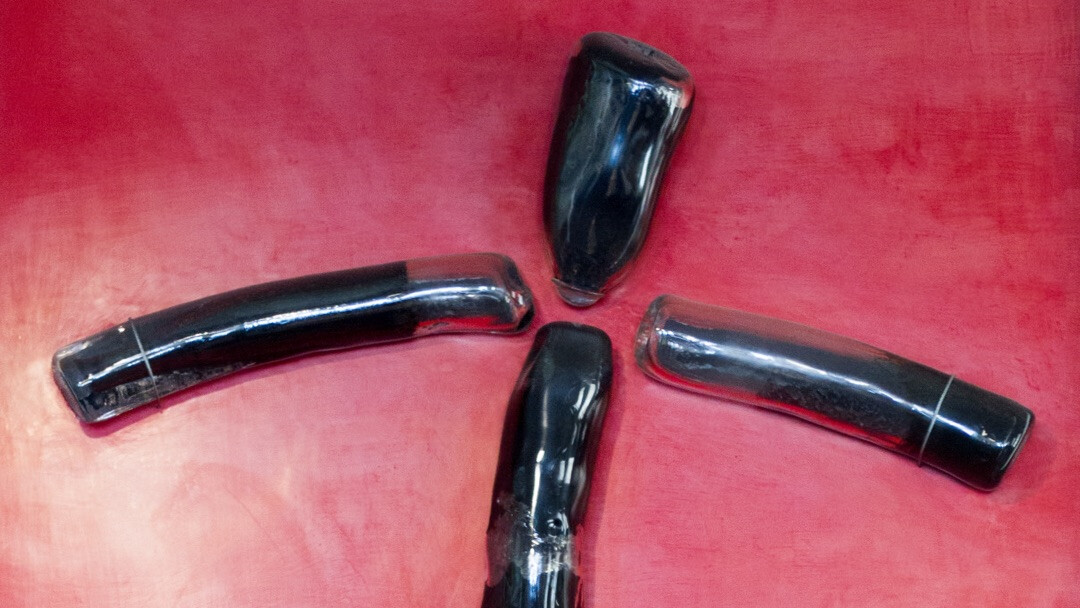
This series includes Ash Wednesday, Palm Sunday, Good Friday and Easter.

